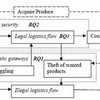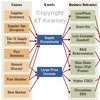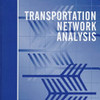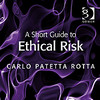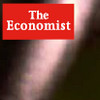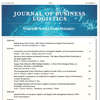 What happens when theory meets practice? Theory fails and practice wins? In academia, more often than not, developing new groundbreaking theories is what is worth pursuing, because it is academically challenging, let alone meriting, despite these theories being practically irrelevant or not offering real(business)-life implications. Nowhere is the outcome of this research-versus-practice debate more important than in the supply chain realm. So say Stanley E Fawcett and Matthew A Waller in Making Sense Out of Chaos: Why Theory is Relevant to Supply Chain Research, an editorial in the Journal of Business Logistics, where they share their vision on how theory’s explanatory power should lead to better decision making, and not be seen as something apart from practice.
What happens when theory meets practice? Theory fails and practice wins? In academia, more often than not, developing new groundbreaking theories is what is worth pursuing, because it is academically challenging, let alone meriting, despite these theories being practically irrelevant or not offering real(business)-life implications. Nowhere is the outcome of this research-versus-practice debate more important than in the supply chain realm. So say Stanley E Fawcett and Matthew A Waller in Making Sense Out of Chaos: Why Theory is Relevant to Supply Chain Research, an editorial in the Journal of Business Logistics, where they share their vision on how theory’s explanatory power should lead to better decision making, and not be seen as something apart from practice.
Have business schools lost their way?
Ghoshal (2005) argued that “bad management theories are destroying good management practices“, blaming business schools for the demise and corruption of good business ethics, because it is scientifically easier to teach shareholder value maximization at the expense of everything else than to argue for (let alone calculate the value of) corporate social responsibility as a driving force in business and supply chain management. With that as a backdrop, Fawcett and Waller set out to describe what theory is, what constitutes a valuable theoretical contribution and how theoretical deliberations can produce richer explanations in supply chain research.
What is theory?
Theory, so the authors, comes down to three different types of conversations or dialogues often found in academic journals:
- Explanation elaborates the whys that underlie the whats and hows we encounter in the world around us. Explanation relates phenomena of interest to create better understanding. Explanation helps managers understand key causal relationships, helping them discern that if they pull lever “A,” outcome “B” will result. Insight into why the world works the way it does has the potential to endure as well as to influence. This is theory.
These conversation types are not mutually exclusive, and the authors state that “as business academics, our opportunity, and responsibility, is to help explain the decision-making environment that surrounds managers, by mingling description, explanation, and prescription within a single conversation”.
Mind you,
Our research makes the greatest contributions to knowledge discovery and dissemination when it helps us understand the core phenomena, and their interrelationships, that influence our tumultuous world.
Perhaps akin to what Christopher and Holweg wrote about supply chain turbulence in their article on Supply Chain 2.0?
What constitutes a valuable theoretical contribution?
Fawcett and Waller hit the nail on the head when they argue that “The challenge for authors, editors, and reviewers alike is to determine what justifies a legitimate contribution to an ongoing conversation. Fortunately, no clear, easy-to-define metric exists. If it did, our conversations would become formulaic and stale as authors played the game of getting published, as I wrote about in The Catch 22 of academic publishing.
But how do we distinguish a valuable contribution and how can we evaluate if what we come up with is really valuable?
Ultimately, so Fawcett and Waller, the measure of a valuable theoretical contribution is whether or not it helps us perceive and understand the world more clearly. James Stock wrote about Broader research = better research already in 1997, and I think he was right, and still is.
How can supply chain research become better?
As business academics, we have the opportunity and obligation, say Fawcett and Waller, to consider how our research can identify and delineate paths to value creation, corporate competitiveness, and societal well-being. How can we do that?
- Step 1: Become knowledgeable about real-world problems
Being conversant in the day-to-day language of business can mitigate the knowledge production gap that emerges when we ask questions that only interest a handful of other academics- Step 2: Periodically look through a new set of lenses
To avoid getting overly comfortable and dependent on a limited set of inquiry tools, we must investigate theories and methods from varied disciplines. By examining vexing problems through new lenses, we will see various facets of complex phenomena in a new light.- Step 3: Learn to communicate via appropriate language
We can and must do a better job of identifying and communicating the practical implications of our research. It should not be our goal to simply entertain other academic researchers.
Reference
Fawcett, S., & Waller, M. (2011). Making Sense Out of Chaos: Why Theory is Relevant to Supply Chain Research Journal of Business Logistics, 32 (1), 1-5 DOI: 10.1111/j.2158-1592.2011.01000.x
Author link
- linkedin.com: Stanley E Fawcett
- linkedin.com: Matthew A Waller
Related posts
- husdal.com: Borrowing our way to a science

